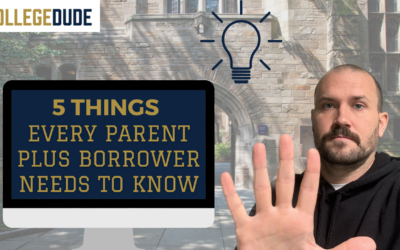If you’re the parent of a student, you know that the cost of education can be a significant financial burden. A simple bit of research will verify this thinking for you. That’s why financial aid is so important, but it can be discouraging to receive a financial aid award offer that doesn’t cover an amount you were expecting. However, it’s important to know that you don’t have to accept the initial offer you receive. In fact, there are many ways to appeal a financial aid award offer and potentially receive more funding. In this post, we’ll discuss some of the most effective ways to appeal financial aid awards and increase your chances of getting the support you need to afford higher education.
Early Decision Regret
The first thing you must understand are the rules. There’s an important concept to understand – early decision and early action. Early decision plans are binding, meaning a student who is accepted must attend the college.
While applying early decision can offer some benefits such as a higher acceptance rate, it can also affect your ability to negotiate a financial aid package. When you apply early decision, you’re essentially committing to attending that school if you’re accepted, which can limit your options and bargaining power when it comes to financial aid negotiations.
Comparing Offers
Each school has its own policies and formulas for calculating financial aid, which can result in very different awards for the same student. By comparing financial aid offers from multiple schools, you can better understand the true cost of attendance and make an informed decision about where to attend.
Not every school is the same, though. State schools are different from Ivy League schools. Ivy League schools are different from private, liberal arts schools. As a result, you want to make sure you’re comparing like-minded colleges. A good way to measure this is to compare schools in an athletic conference. If they share an athletic conference, there’s a good chance they will be similar demographically and financially.
You’ll also need to make sure you provide evidence of offers. Often times, colleges will want to see the competing school’s offer. You’ll also need to make sure you can distinguish the difference between a loan on the offer and a grant or scholarship.
Be Prompt & Respectful
Believe me, I get it. Dealing with financial aid offices & college representatives can be an unforgiving process. It’s a challenge. That said, you’re dealing with humans. These folks are employees of the university, so they will do their best to look out for the university’s best interest. But if you are respectful and respond promptly to their requests, you give yourself a better chance.
Decency and respect should be universal. In this process, many of these folks deal with upset parents and students. If they are using professional discretion, I expect them to remember those who treated them as human.
Personalize & Student-Led
From my experience, the best odds of success are when a few things happen simultaneously. First, it must be student-led. The parent can and should be on the call or cc’ed on the email. But there’s no doubt the financial aid officers respond to the child attending the school, not the parent.
It’s also important to be personal and specific. This might be the most important of the effective ways to appeal financial aid awards. If you’re looking for a specific amount of additional funds, let the representative know! Explain why you’re deserving or could use a break, as opposed to just saying you want more.
Conclusion
Some people love to negotiate. Others hate it. Regardless, setting a budget for a dream school is a non-negotiable. Once you have a budget set, it’s time to apply and see what you get back. A great offer is a great thing! But not everyone gets the offer he/she is looking for. When that happens, there are ways to negotiate, and I hope you realize these are the most effective ways to appeal financial aid awards. It won’t be easy, but an extra thousand here or there is a great deal, and money that doesn’t have to be loaned!






